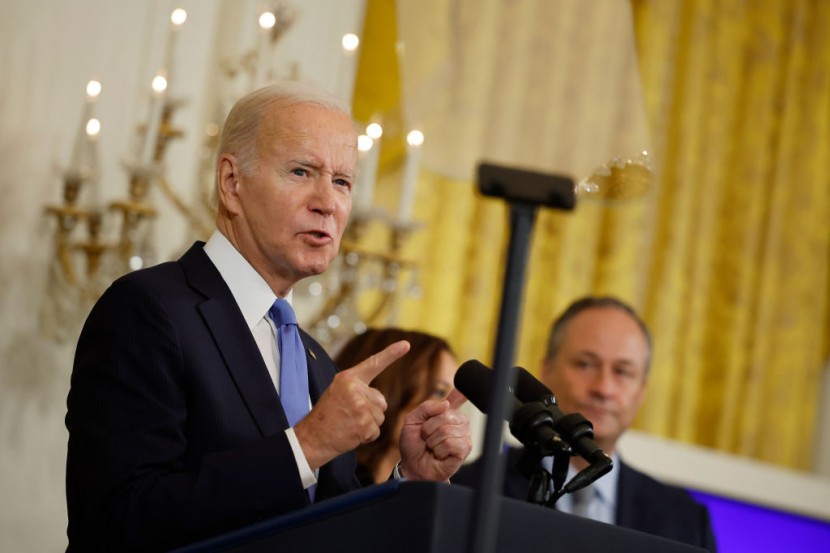
President Joe Biden has branded Russia's seizure of Ukrainian territory a show of "contempt for peaceful nations," prompting the United States to impose additional sanctions on hundreds of Russian-linked corporations and officials.
On Friday, the Department of the Treasury imposed sanctions on over 300 Russian legislators, along with organizations and persons it alleged of ties to Russia's "military-industrial complex," including the country's central bank head, Al Jazeera reported.
Biden Urges The World to Reject Russia's Annexation
Treasury Secretary Janet Yellen described the penalties as "swift and severe" since they prohibit Americans from doing business with the specified organizations and people and freeze their funds in the United States.
In a statement, Yellen remarked, "The Treasury Department and US government are taking sweeping action" to further strain Russia's already impaired military-industrial complex and disabling its capacity to carry out its illegal attack on Ukraine.
The Department of Commerce announced that it will expand its list of firms subject to export controls by 57 additional targets in Russia and the Crimea area of Ukraine. Officials also stressed Friday that export control procedures can also apply to enterprises in other countries that give support to Russia and Belarus, CNBC reported.
On Friday, the Bureau of Industry and Security in the Department of Commerce announced new export control actions that will affect domestic and international organizations and persons who "give political or economic assistance to Russia for its putative annexation."
In a statement, Under Secretary of Commerce for Industry and Security Alan Estevez noted that the number of organizations requring export licenses are currently 392 and counting. He added that the US government, in collaboration with allies and partners, is "clamiping down" organizations and individuals that support Russia's military campaign to cut it off from supplies and technologies it requires to carry out its military endeavors.
Yahoo! Finance reported that the US is targeting other Russian government individuals and leaders, their families, Russian and Belarusian military personnel, and military acquisition organizations, including overseas suppliers backing Russia's military-industrial complex, a White House official stated.
The US State Department included over 900 persons on its visa ban list for alleged links to Russia's military operation.
Several of the new targets are the result of the United States and its allies closely monitoring Russian attempts to evade penalties designed to limit access to crucial elements for the weapons sector in real-time.
Economic Sanctions Not Enough to Stop Russia
US President Biden underscored that the United States rejects Russia's "fraudulent attempt" to grab legitimate Ukrainian territories. Biden said, "Russia is violating international law, trampling on the United Nations Charter, and showing its contempt for peaceful nations everywhere."
The US chief executive also urged the international community to condemn "Russia's illegal attemts at annexation" and continue supporting Ukraine "for as long as it takes," as per a CNN report. On Friday, Russian President Vladimir Putin declared that Russia would fully absorb the seized Ukrainian provinces of Donetsk, Luhansk, Kherson, and Zaporizhia.
In his address at St. George's Hall at the Kremlin, Pres. Putin claimed that Russia's annexation of the Ukraine territories was "the will" of the people. According to Jacob Funk Kirkegaard, a nonresident senior fellow at the Peterson Institute for International Economics, Vladimir Putin "is losing" on the war grounds.
Hence Moscow is attempting to take the Ukrainian territories under its control as Russian troops are getting ousted by Ukraine's forces. The expert acknowledged that sanctions had hurt Putin's military capabilities but argued that they wouldn't be enough to bring down Russia's economy.
Despite doubts about the move's efficacy given Russia's relationship with nations like China, Biden administration officials have long advocated export limits as a tool to shut off Russia from resources like high-tech semiconductors and the wider "21st-century economy."
Related Article : Joe Biden Calls Out Vladimir Putin, Russia's 'Lies' on Nord Stream Pipeline Leak: 'It Was a Deliberate Act of Sabotage'
© 2025 HNGN, All rights reserved. Do not reproduce without permission.








